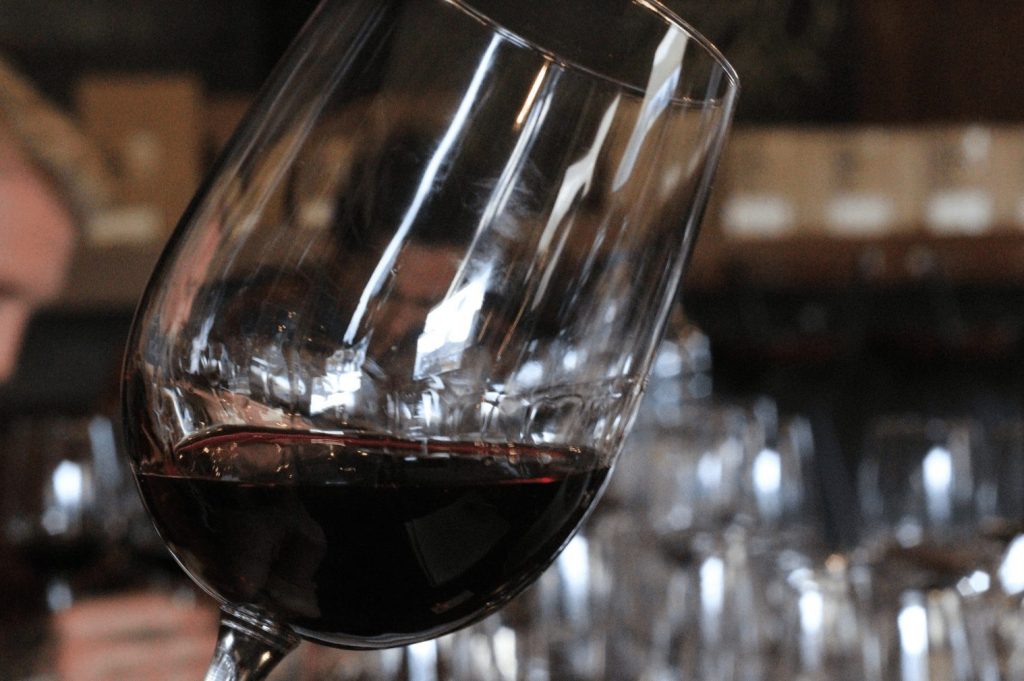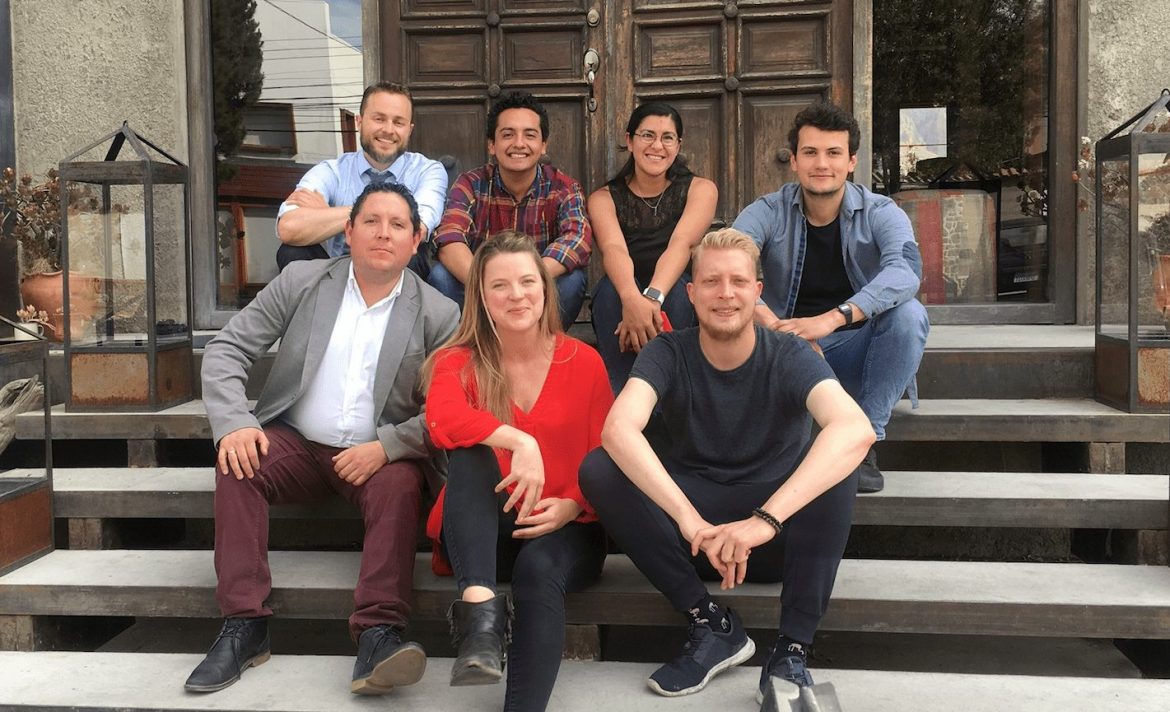What are the best Bolivian wines to taste in order to understand this unique wine country? That was the question on the minds of the team at South America Wine Guide last week as we traversed the wine regions of Bolivia and sat down to an extensive panel tasting on Friday.
As part of our upcoming Latin American wine guide exploring the regions and producers, we’re going to be tasting extensively to bring you some of the top pours that can help guide your taste exploration of this exciting wine continent. First up was Bolivia, with our panel tasting last week to help us find the award-winning wines for our upcoming book: South America Wine Guide 2020.
The Tasting

Bertil is also one of our Curators for Bolivia, along with fellow sommelier and wine importer Darren Armstrong, who for several years has been living between Bolivia and the US and working with Bolivian wines. Together they drew up a shortlist of Bolivian wines that not only reflect the high altitude of this landlocked country but also the powerful attitude of Bolivian producers today — from those who are safeguarding historic wine traditions in the oldest wine valleys to those who are innovating with new varieties and new regions.
This shortlist of wines was put to our panel in a blind tasting to discover which wines and varieties really stood out. The tasting included close to 60 samples of wines from a range of valleys in Bolivia, including Tarija, Cinti, Samaipata and Cochabamba. Varieties ranged from the most traditional of Criolla varieties (such as Vischoqueña and Negra Criolla) through to new varieties for Bolivia, including Marselan and more established international varieties such as Tannat and Cabernet Sauvignon.
We were thrilled to count on the participation of many of Bolivia’s top wineries (each of which you can read about in our winery guide) including:
- Aranjuez
- Campos de Solana
- Cepa de Oro
- Cepas de Fuego
- Cruce del Zorro
- Kohlberg
- Kuhlmann
- Marquez de la Viña
- Bodega Magnus
- San Francisco de la Horca (Marcelo Vacaflores)
- Tierra Roja
- Uvairenda
who all kindly sent in their samples ready for the tasting.
The results & some conclusions on Bolivian wine
The results are filed away and being kept in a guarded vault until the book is released later this year… but there are a few conclusions from the panel and some of my own conclusions which I’m happy to share at this stage. It’s a rare opportunity to taste so many Bolivian wines in one big tasting, and one that was both eye-opening and quite inspiring. Here are some thoughts following the tasting:
Moscatel is the queen of Bolivia
One of the most exciting flights was of dry wines made from Moscatel de Alejandria (Muscat of Alexandria). This really is Bolivia’s variety of excellence. Each wine carried such a strong identity, expressing not only the variety, but the vineyard and the vigneron. Each was unique but equally as exciting and enjoyable to drink. I am going to put my neck out there and say Bolivia has the best Moscatel in the world.
Bolivia’s best steal is simple, refreshing white wines
In terms of value, it was hard to beat some of the refreshing white wine blends and single varieties coming from all over Bolivia’s wine regions. The abundant sunshine and high altitude mean that these white wines deliver on exuberant aromatics while keeping a refreshing and balanced acidity – some of which you can find on the local market for under $10 USD!
Tarija’s red wines can be as big and bold as those from the rest of the New World, but acidity marks the difference
Tarija is the heart of Bolivian wine production and it’s here where you’ll find some of Bolivia’s most expensive wines that are designed to compete with some of the other big ‘iconic’ wines from the New World. The high altitude and luminosity of Tarija mean that these wines always deliver on concentration and high sugar/alcohol potential but the spine of refreshing acidity is what differentiates them from those of other New World wine regions and keeps them in balance. Whether we are looking at Tannat, Cabernet Sauvignon, Petit Verdot or Malbec, each had a lifting acidity which really contributed to their character.
Celebrate Criolla and Cinti
Some of the wines with the most unique expressions were the Criolla varieties (Missionera and Vischoqueña, for example), which often came from the Cinti Valley. These unique grape varieties should be celebrated and the old vines treasured as they undoubtedly offer some of the most authentic and distinctive expressions of Bolivian wine.
The Panel
 Bertil Tøttenborg: Bolivia Curator
Bertil Tøttenborg: Bolivia Curator
Bertil Levin Tøttenborg has been sourcing and selecting wines from around Bolivia’s wine regions for the impressive wine cellar at Gustu restaurant since 2015. As Head Sommelier at Gustu he is in charge of one of the most extensive lists of Bolivian wine in the world.
Born and raised in Denmark, where he trained as a sommelier, Bertil brings both an international and a local perspective to the tasting panel.
 Darren Armstrong: Bolivia Curator
Darren Armstrong: Bolivia Curator
Trained in the US, Darren Armstrong is an experienced sommelier who has worked in several different areas in the United States, including restaurants, wine imports, distribution and education.
Since 2014, he has specialised in Bolivian wine and he spent time living in La Paz before moving back to the US to help found Chufly – a specialist wine importer focused on bringing Bolivian wine and Singani to the US market. He also works as a consultant and runs education workshops on Bolivian wine in the US, and tasting classes and international wine education in Bolivia.
 Amanda Barnes: Editor & Bolivia Panelist
Amanda Barnes: Editor & Bolivia Panelist
Founder and Editor of the South America Wine Guide, Amanda Barnes has been based in South America since 2009, where she specialises in writing about Latin American wine regions for several international wine magazines and books.
She is an experienced wine taster and panelist for several international wine competitions, including the Decanter World Wine Awards. She has visited Bolivia’s wine regions in 2016 and 2019 to meet producers and learn about the wines on the ground.
 Luis Guzman: Bolivia Panelist
Luis Guzman: Bolivia Panelist
Luis, or Lucho, Guzman is a specialist in sustainable viticulture and is instrumental in helping to develop Bolivia’s Sustainability Code for wine producers. He founded and organises one of Bolivia’s top wine tasting events, Bolivia Wine Fest, held each August in La Paz.
He is an experienced taster of Bolivian wine and frequently travels to other wine regions in Latin America and Europe to taste wines.
 Laura Decurnex: Bolivia Panelist
Laura Decurnex: Bolivia Panelist
Laura is an Argentine-born sommelier who moved to Bolivia in 2007 and has been writing about the wines and producers of Bolivia in her blog, Lau Malbec, for over a decade.
As well as communication and writing, Laura frequently gives masterclasses and wine tastings in Bolivia to educate local consumers about wine from Bolivia and beyond. She is experienced in tasting Bolivian wine and wines from around Latin America and elsewhere.
 Pablo Antelo: Bolivia Panelist
Pablo Antelo: Bolivia Panelist
Pablo Antelo is a young Bolivian wine professional who made his name working as Assistant Manager in Gustu and spent time training in Europe, as well as La Paz.
He is now restaurant manager at Ali Pacha restaurant in La Paz, which offers plant-based Bolivian haute cuisine focused on highlighting Bolivian ingredients and wines.
–
 Mauricio López: Bolivia Panelist
Mauricio López: Bolivia Panelist
Mauricio López is a young chef in La Paz and one of the rising stars of Bolivian cuisine. He has been cooking for over a decade. He trained in Copenhagen’s Noma before working in the kitchen at Gustu for several years. He recently founded Ancestral restaurant in La Paz.
Mauricio is an experienced local wine taster and brings his experience of pairing Bolivian wine and cuisine to the panel.
Read more about Bolivian wine:
A special thank you to Darren Armstrong for sharing his photography from the tasting.








